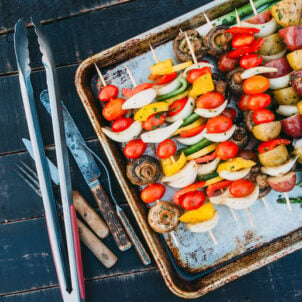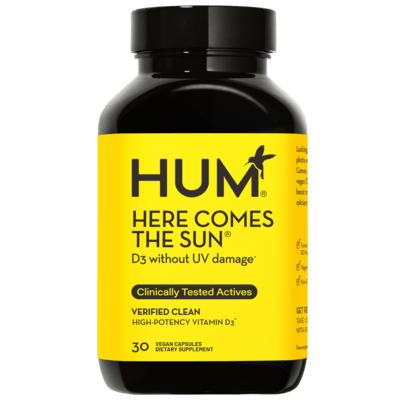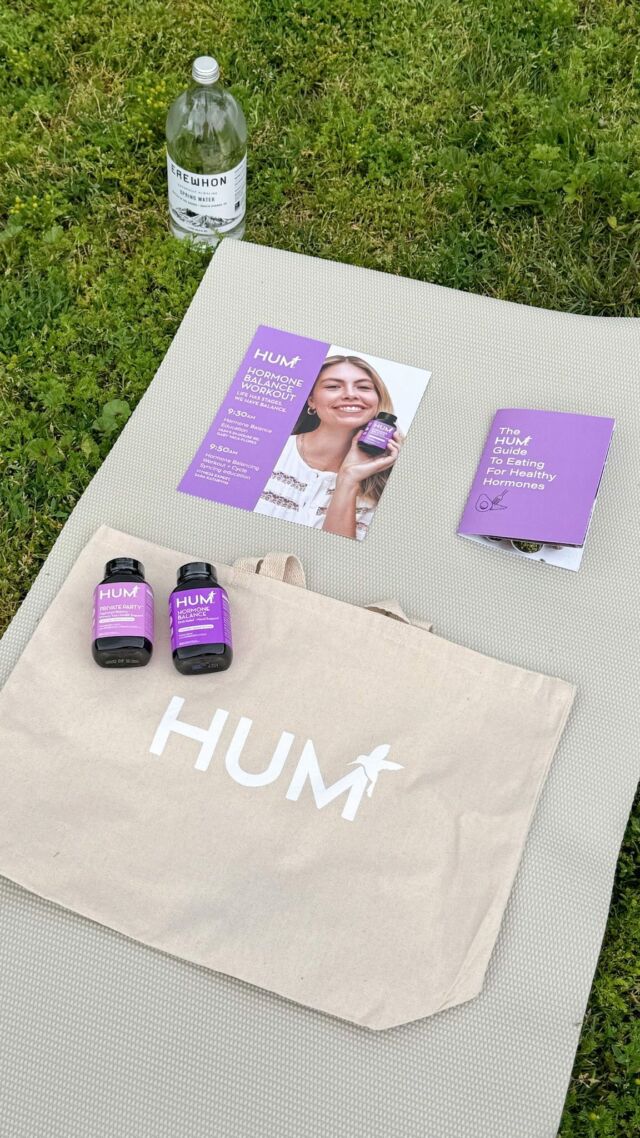Vitamin C-Rich Recipes And Sun Protecting Foods
Boost your skin’s health with vitamin C-rich recipes and discover sun-protecting foods for a radiant and protected complexion. This article offers a collection of delicious and nutritious recipes packed with vitamin C and insights into the benefits of consuming sun-protective foods for your skin’s well-being.
Vitamin C, also known as ascorbic acid, is a water soluble vitamin and a potent antioxidant that supports numerous vital functions in our bodies. It is an essential nutrient that we need to get from foods and is found in high concentrations in foods like citrus, broccoli, red peppers and tomatoes.
Vitamin C is also a potent antioxidant able to protect the skin from oxidative stress caused by free radicals. These free radicals, generated through exposure to environmental factors such as sunlight, pollution, and smoking, can wreak havoc on our skin cells, leading to premature aging, wrinkles, and dull complexion. By neutralizing these harmful free radicals, vitamin C assists in preserving collagen, a vital protein responsible for maintaining the skin’s elasticity and suppleness.

A steady supply of collagen ensures that our skin remains youthful, firm, and capable of withstanding the external stresses it encounters daily. Vitamin C is also essential in our body’s production of collagen, serving as a key cofactor for the enzymes involved in collagen synthesis, stabilizing the structure of collagen molecules and influencing the expression of genes that increase collagen production.
The Sun-Protecting Diet
The foods we eat that contain vitamin C as well as other sun-protective foods that contain antioxidants, vitamins, and minerals play a crucial role in safeguarding the skin from UV damage caused by the sun’s rays. While sunscreen is essential for providing a physical barrier against UV radiation, incorporating sun-protective foods into your diet can offer additional benefits in comprehensive sun protection.
Incorporating foods rich in antioxidants helps manage UV damage from sun exposure. Antioxidants (in addition to vitamin C) that can help include carotenoids like beta-carotene, lycopene, lutein and zeaxanthin as well as the mineral selenium. Strawberries, citrus, cruciferous veggies and red bell pepper are great sources of vitamin C. Brazil nuts, seafood, and eggs are a good source of selenium, and leafy greens, watermelon and tomato are rich in carotenoids. You can incorporate them in various ways like adding frozen berries to smoothies, adding chopped brazil nuts or hard boiled eggs into salads, and tossing leafy greens (fresh or frozen) into soups.
Hydration for Sun Defense
Hydrated skin is more resilient to sun damage, as it is better equipped to do its job as a barrier against external pollutants and helps manage the drying effects of sun exposure. Staying hydrated can help optimize the performance of sunscreen. When sunscreen is applied to well-hydrated skin, it forms a more even and effective barrier, offering enhanced protection against harmful UV rays. In addition to water, some foods have high levels of water or additional nutrients that contribute to a sun protecting diet.
Cucumber: Cucumbers have a high water content (about 96%), making them an excellent hydrating snack. They also contain silica, a compound that contributes to skin elasticity.
Watermelon: Watermelon is not only refreshing but also a great source of hydration due to its high water content (about 92%). It also contains lycopene, a powerful antioxidant that aids in protecting the skin from UV-induced damage.
Coconut Water: Coconut water is a natural electrolyte-rich beverage that provides hydration while supplying essential minerals like potassium and magnesium. These minerals support healthy skin function.
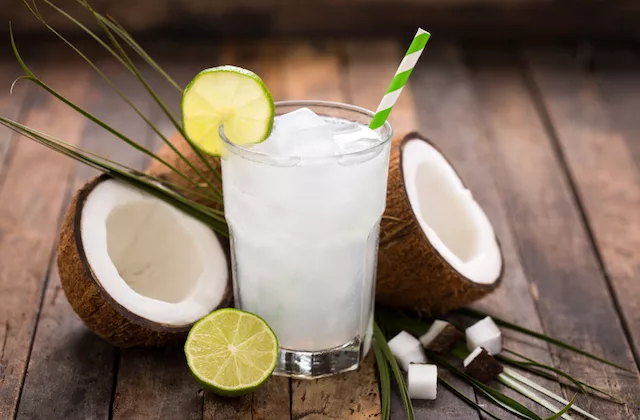
Leafy Greens and Their Skin Benefits
Leafy greens like spinach, kale, and Swiss chard are powerhouses of nutrients essential for maintaining skin health. They are packed with vitamin C to help collagen synthesis and their high carotenoid content, including beta-carotene and lutein, help neutralize harmful free radicals generated by UV exposure.
Omega-3 Fatty Acids for Skin Resilience
Omega-3 fatty acids, abundant in fatty fish, chia seeds, and flaxseeds, play a vital role in maintaining the skin’s barrier function and reducing inflammation caused by sun exposure. These essential fatty acids help fortify the skin’s protective lipid barrier, preventing excessive moisture loss and enhancing its ability to retain hydration. Moreover, omega-3s possess anti-inflammatory properties that counteract the inflammation triggered by UV radiation, helping to manage skin irritation.
Antioxidant-Rich Recipes for Sun Defense
Foods rich in vitamin C and other sun protecting nutrients play a critical role in maintaining overall skin health. Vitamin C, found in citrus fruits, strawberries, and bell peppers, supports collagen production, promoting skin vitality and reducing the signs of aging. Sun-protecting foods like berries, dark chocolate, and hydrating options such as cucumber and coconut water, offer a wealth of antioxidants that combat free radicals, shielding the skin from UV damage. It is also important to be sure to wear sunscreen as a barrier to provide the best UV protection, but incorporating these foods and nutrients helps provide additional support for healthy looking skin.
Tropical Citrus Smoothie
Ingredients:
Slices from 1 orange, peeled
1/2 cup of fresh pineapple chunks
1/2 cup of fresh mango chunks
1/2 cup of coconut water
1 tablespoon of chia seeds (optional)
Ice cubes
Skin Benefits:
This smoothie is bursting with vitamin C from the orange and pineapple, and mangoes contain beta-carotene.
Instructions:
Combine all the ingredients in a blender.
Blend until smooth and creamy.
Pour into a glass, garnish with a slice of orange, and enjoy this tropical treat that nourishes your skin.
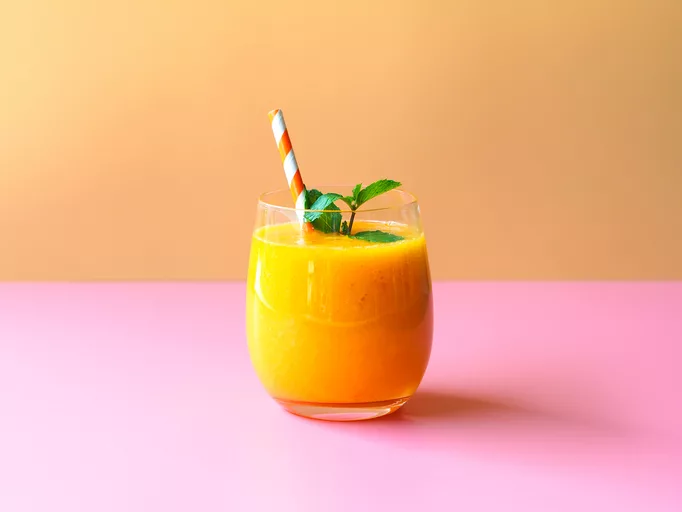
Strawberry Spinach Salad
Ingredients:
2 cups of fresh baby spinach leaves
1 cup of sliced strawberries
1/4 cup of crumbled feta cheese
1/4 cup of chopped pecans
Balsamic vinaigrette dressing
Skin Benefits:
Strawberries are rich in vitamin C, and spinach is packed with carotenoids and vitamin C.
Instructions:
In a salad bowl, combine the baby spinach and sliced strawberries.
Sprinkle the crumbled feta cheese and chopped pecans over the top.
Drizzle with balsamic vinaigrette dressing and gently toss until evenly coated.
Serve and savor the delightful taste and skin-nourishing goodness of this salad.
Bell Pepper and Quinoa Stuffed Peppers
Ingredients:
4 bell peppers (assorted colors), halved and seeds removed
1 cup of cooked quinoa
1 cup of black beans, drained and rinsed
1 cup of diced tomatoes
1/2 cup of diced red onion
1/2 cup of shredded cheddar cheese
1 teaspoon of ground cumin
1/2 teaspoon of chili powder
Salt and pepper to taste
Skin Benefits:
Bell peppers, especially the red ones, are rich in vitamin C, and quinoa contains lysine, an essential amino acid that promotes collagen formation.
Instructions:
Preheat the oven to 375°F (190°C).
In a large mixing bowl, combine the cooked quinoa, black beans, diced tomatoes, red onion, shredded cheese, ground cumin, chili powder, salt, and pepper.
Stuff each halved bell pepper with the quinoa mixture, pressing it down gently.
Place the stuffed peppers on a baking sheet and bake for 25-30 minutes or until the peppers are tender.
Allow the stuffed peppers to cool slightly before serving, relishing the delicious taste and skin-enriching nutrients.
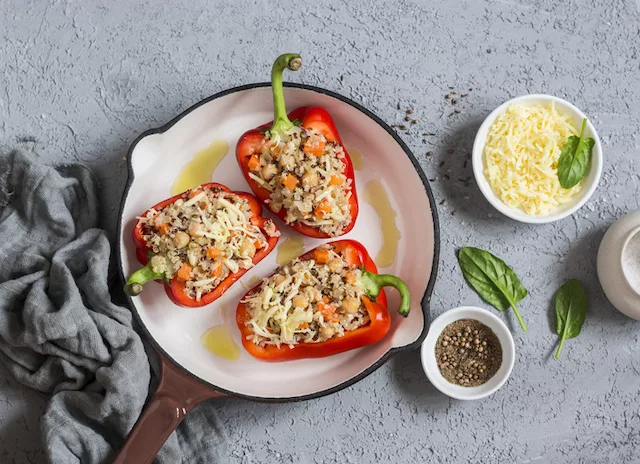
Dark Chocolate Berry Bark:
Ingredients:
1 cup of dark chocolate chips (at least 70% cocoa content)
1/4 cup of mixed berries (blueberries, raspberries, and strawberries), chopped
2 tablespoons of chopped almonds or walnuts
1 tablespoon of unsweetened coconut flakes
Skin Benefits:
Dark chocolate is rich in flavonoids, berries are packed with vitamin C and other antioxidants, and nuts contain vitamin E, which all contribute to supporting skin health.
Instructions:
Line a baking sheet with parchment paper.
In a microwave-safe bowl, melt the dark chocolate chips in the microwave in 30-second intervals, stirring in between, until smooth.
Pour the melted chocolate onto the prepared baking sheet, spreading it into an even layer using a spatula.
Sprinkle the chopped berries, nuts, and coconut flakes evenly over the chocolate.
Place the baking sheet in the refrigerator for about 30 minutes or until the chocolate sets.
Once the bark is firm, break it into small pieces and serve. Store any leftovers in an airtight container in the refrigerator.
Mixed Berry Chia Seed Pudding:
Ingredients:
1 cup of mixed berries (blueberries, raspberries, and strawberries), fresh or frozen
1 cup of unsweetened almond milk (or any milk of your choice)
3 tablespoons of chia seeds
1 tablespoon of honey or maple syrup (optional, for added sweetness)
1/2 teaspoon of vanilla extract
Skin Benefits:
Chia seeds are a great source of omega-3 fatty acids, and berries are rich in antioxidants and vitamin C.
Instructions:
In a blender, combine the mixed berries, almond milk, honey or maple syrup (if using), and vanilla extract.
Blend until smooth and well combined.
Pour the mixture into a bowl and stir in the chia seeds.
Cover the bowl and refrigerate for at least 2 hours or overnight to allow the chia seeds to gel and thicken the pudding.
Stir the pudding before serving and top with additional berries, nuts, or coconut flakes if desired.
Conclusion
You’ve read it here–we have vitamin C recipes to help your strengthen your skin that are not only nutritious, but they are delicious! Don’t forget to lather up on SPF!
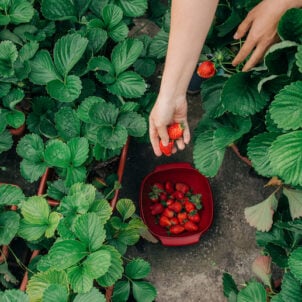
I Tried Eating Strawberry Leaves for Their Incredible Health Benefits and Here’s What They Taste Like

Real Talk: Is Fasting Actually Healthy? Here’s What Women Need to Know

The Only Guide to Female Orgasm You’ll Ever Need for Peak Pleasure
